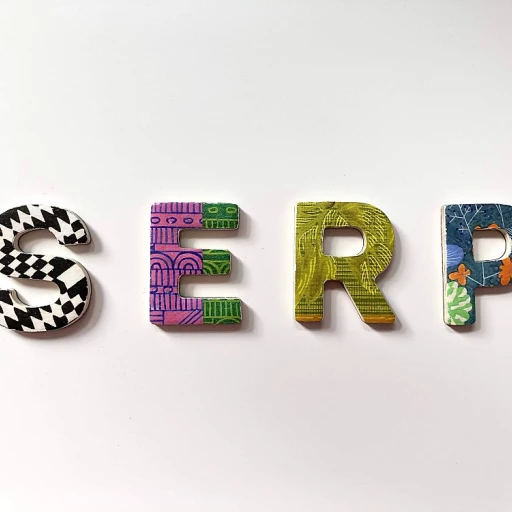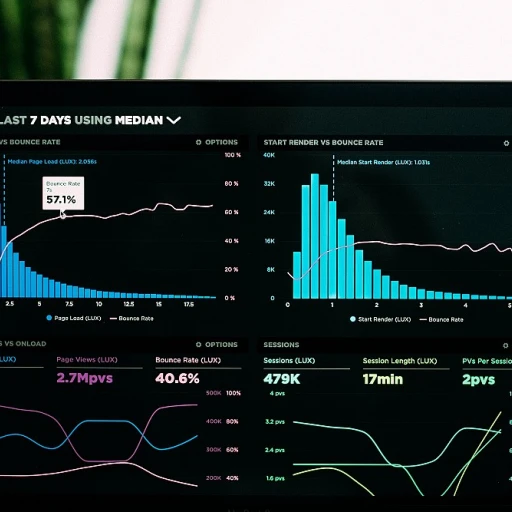
Decoding Bias in AI: Impacts on SEO Performance
Unraveling the Complex Web of AI and Biases
In the realm of search engine optimization (SEO), the infusion of artificial intelligence (AI) has been both a boon and a conundrum. While AI augments our ability to parse through vast datasets and optimize web content for better search rankings, it is not free from innate biases that may skew results and impact SEO performance. These biases, often a reflection of the data AI systems are trained on, can inadvertently perpetuate stereotypes, narrow diversity, and impact the visibility of content across search engines.
Studies indicate that algorithms can display troubling inclinations, favoring certain demographics while disadvantaging others. A notable example resides in the realm of job search algorithms, where inadvertent biases in AI can lead to unequal exposure of job opportunities, as highlighted by researchers from renowned institutions. This exemplifies the crux of the issue within SEO, where visibility equates to opportunity, and bias can lead to a disproportionate digital landscape.
Tackling Invisible Prejudices in Search Algorithms
To craft ethical SEO strategies, one must first identify the subtleties of bias that may lace AI algorithms. This includes recognizing data that feed into these systems, often culled from historical human behavior and potentially fraught with ingrained prejudices. Without careful analysis and modification, these prejudices can bleed into search engine rankings, suggesting a need for vigilant oversight and ongoing refinement.
AI-driven tools for keyword research, for example, might favor topics that resonate with a particular segment of the user base, thus narrowing the scope of content deemed 'relevant' or 'authoritative.' It's an issue that demands not only technological solutions but a human-centric approach to SEO, a topic we delve into by examining the balance between AI and human moderation in advancing fair and inclusive search practices.
Setting the Stage for Ethical Algorithm Design
Embedded biases can be addressed through ethical algorithm design that prioritizes fairness and inclusivity. This involves deliberate efforts, such as diversifying training datasets and involving multidisciplinary teams that can bring different perspectives to AI development. By engineering systems that are attuned to the nuances of bias, SEO professionals can pave the way for a more equitable digital sphere.
It is a multifaceted endeavor, one that hinges on transparency—demystifying the mechanisms behind AI algorithms to engender trust—and preparing for the burgeoning field of AI ethics in SEO, a paradigm shift that will fundamentally alter how professionals approach optimization in the digital age. As we turn our gaze towards the horizon, the importance of readying SEO strategies for a future underscored by ethical considerations stands paramount, ensuring that the digital gateways we create are accessible and fair to all.
Engineering Ethical SEO: Strategies to Mitigate AI Prejudice
Building a Framework for Ethical SEO
In the ever-evolving landscape of search engine optimization (SEO), artificial intelligence (AI) has become a pivotal player. Yet, as AI shapes how we optimize for search engines, concerns regarding biases in AI have surfaced. These biases can inadvertently influence rankings, creating an uneven digital playing field. To ensure that SEO practices remain ethical, it is crucial to design strategies that identify and neutralize AI prejudices.
Neutralizing AI Bias Through Diverse Data Sets
The first step in mitigating bias within AI algorithms is to utilize diverse and comprehensive data sets. When an algorithm is trained with data that reflects a wide range of users and scenarios, it becomes more adept at making unbiased decisions. A study by MIT researchers has shown that algorithms trained on more diverse data sets performed better at tasks without exhibiting discriminatory behaviors. By integrating diversity at the data level, SEO professionals can minimize bias and cater to a more accurate representation of user intent.
Regular Audits and Updates to the AI-Driven SEO Tools
Continuous monitoring and auditing of AI systems is an integral part of ethical SEO. Regular audits can reveal hidden biases and provide an opportunity for corrections. These audits should extend beyond just the algorithms to include content and keywords ensuring they contribute positively to equity in search visibility. According to a report by Deloitte, consistent audits help maintain the accuracy and fairness of AI applications, promoting an ethical environment in SEO practices.
Encouraging AI Explainability and Interpretability
The black-box nature of some AI models makes it challenging to understand their decision-making processes. This opaqueness can lead to mistrust and ethical concerns. SEO experts should champion AI systems that are not just powerful, but also interpretable and transparent. The ability to explain how certain outcomes are reached by AI tools ensures accountability and aids in swiftly addressing any bias. Industry leaders like Google have emphasized the importance of explainable AI, creating tools that aid developers in understanding and debugging their machine learning models.
Inclusive Collaboration Between Machine Learning Engineers and SEO Specialists
To effectively combat bias within AI-driven SEO, there must be a cooperative effort between machine learning engineers and SEO specialists. This collaboration fosters an environment where technical AI development is infused with SEO expertise, optimizing algorithms to understand and rank content fairly. A study in the Harvard Business Review highlighted this approach, noting that multidisciplinary teams are more likely to identify and mitigate bias in AI systems.
Preemptive Design Considerations in AI for Proactive SEO Equity
Anticipating potential biases and proactively designing AI models to avoid them is key to ethical SEO. By considering various perspectives and potential impacts during the initial stages of AI development, developers can build systems that support fairness in SEO from the outset. As the Algorithmic Justice League advocates, this approach involves not just technical adjustments but also a broader consideration of social and cultural contexts, ensuring a fair and equitable online presence for all entities.
The Human Touch: Balancing AI and Human Oversight in SEO
Nurturing a Synergistic Relationship Between AI and Human Insight
As search engine optimization (SEO) harnesses the power of Artificial Intelligence (AI), it is essential to maintain a balanced partnership between AI's efficiency and human critical thinking. While AI can process and analyze data at unprecedented speeds, it lacks the nuanced understanding that comes from human experience. Experts argue that AI-powered SEO can significantly benefit from the strategic input and ethical considerations that only humans can provide.
For SEO success, it’s not just about keyword density or meta tags; it’s about understanding user intent and delivering value. A prime example is Google's algorithm updates that increasingly focus on user experience and content quality. Human SEO professionals can interpret these updates and adjust strategies that align with both search engine requirements and user expectations.
Incorporating Human Ethics into Algorithmic Decision-Making
The intricacies of human ethics can be elusive for AI, yet they are crucial for maintaining fairness in SEO. For instance, when deciding which content to promote, human oversight ensures that ethical SEO strategies consider inclusivity and diversity, avoiding the amplification of biased perspectives. Human SEO experts can evaluate whether the AI's content recommendations align with ethical standards, acting as gatekeepers to prevent prejudicial outcomes.
Professional SEO strategists emphasize that algorithms should not operate in isolation when decisions have societal impacts. According to recent statistics, 59% of consumers believe companies need to provide more transparent algorithms (Source: Transparency in Corporate AI, 2022). By taking an active role in overseeing AI decisions, SEO professionals help to build user trust and promote fairness.
Emphasizing the Importance of Contextual Understanding in SEO
One of the limitations of AI involves its ability to fully grasp context. In the dynamic world of SEO, where context changes as per trending topics and cultural shifts, human intuition is indispensable. It's human expertise that can discern the subtleties of language and cultural references which AI might misconstrue, potentially leading to irrelevant or insensitive content appearing in search results. By integrating human judgment, businesses can ensure their SEO strategy remains sensitive to context and culturally aware.
As companies strive for high-ranking SEO performance, they should not overlook the value of human insights in interpreting data trends. For example, a sudden spike in search traffic due to a current event might be misinterpreted by AI as a long-term trend, whereas a human can provide the analytical perspective needed to make informed strategy adjustments.
Cultivating Trust and Authority with Human-Verified SEO
In the modern digital landscape, the authenticity and trustworthiness of content are paramount. By having SEO experts who can vet content for accuracy and integrity, businesses elevate their brand’s authority. Users are more likely to trust search results when they feel there is an ethical review process behind the rankings. In this way, integrating human verification alongside AI applications in SEO is not just about fairness; it's also an impactful marketing strategy.
Final analysis reinforces that AI, while transformative for SEO, achieves its greatest potential when coupled with human expertise. As we harness the technological capabilities of AI, it is paramount to remember that the human element is what breaths life into data, shaping it into strategies that are ethical, trustworthy, and ultimately more effective in the ever-evolving pursuit of SEO excellence.
Transparency First: Demystifying AI Algorithms for Trustworthy SEO
Demystifying AI Algorithms for Greater SEO Clarity
One of the pressing challenges in today’s digital marketing landscape is the opaqueness of artificial intelligence (AI) algorithms. For any SEO campaign to be successful, understanding how these algorithms work is of paramount importance. A lack of transparency can lead to misplaced strategies and unfulfilled potential in search engine optimization efforts.
Search engines like Google leverage complex AI and machine learning mechanisms to rank content. While the exact workings remain trade secrets, Google does offer guidelines that give some insight into their AI's expectations. However, for truly trustworthy SEO, a deeper comprehension is needed. It's here where SEO professionals must advocate for more visibility into how AI influences ranking and visibility.
Building Trust Through Transparent Practices
The call for transparency isn't just about understanding AI; it's about building trust with users. SEO specialists must ensure that their methods align with the ethical use of AI, as discussed earlier. This includes being candid about the use of AI tools and the potential biases they may carry. By openly addressing these issues, businesses can foster a sense of reliability and ethics that resonates with their audience.
Unlocking the Black Box of AI in SEO
To foster trust and improve SEO strategies, one must dig into the 'black box' of AI. This begins with asking the right questions: What data does the AI use? Are there built-in safeguards against bias? What measures are in place to ensure accuracy and fairness? While search engines may not provide all the answers, SEO professionals can conduct their research and tests to better understand AI behaviors and rectify any unfair biases. Moreover, using tools that offer insights into how AI evaluates and ranks content can lead to more informed, ethical SEO tactics.
Statistically, it's been shown that sites ranking on the first page of Google capture roughly 71% to 92% of search traffic clicks. This powerful statistic suggests that a straightforward understanding of AI's role in SEO could drastically improve your visibility and traffic, highlighting the critical nature of transparency.
SEO in the Age of AI: An Ongoing Learning Process
In this fast-evolving digital environment, keeping abreast of changes to AI algorithms is crucial. SEO professionals must commit to ongoing education and adapt their strategies in real-time to maintain optimal search engine rankings. Whether it's Google's BERT or the latest AI update, a continuous learning approach is needed to ensure your SEO practices don’t fall behind.
By championing for transparency in AI algorithms, advocating for fairness, and employing a rigorous, educated approach to SEO, businesses can not only adapt to but also thrive in, the challenging landscape of AI-powered search engine optimization. The future of SEO is undeniably intertwined with the ethical and fair use of AI. It's through these practices that websites can achieve the highest standards of visibility and integrity in the digital age.
Ahead of the Curve: Future-Proofing SEO in the Age of AI Ethics
Embracing Proactivity in SEO Ethics
As the digital landscape evolves, staying ahead of ethical concerns in search engine optimization (SEO) is not just a matter of adjusting algorithms, but a continuous commitment to proactivity. SEO experts know that anticipating future ethical challenges is crucial. The integration of AI into SEO has given rise to complex ethical issues, but by predicting and understanding potential biases, we can take steps to ensure a fair and unbiased digital search environment.
Fostering an Ethical SEO Culture
Creating an ethical SEO culture involves more than implementing a code of conduct; it's about fostering an industry-wide understanding of the implications of AI biases. By integrating AI ethics into the core of SEO practices, professionals can cultivate a more responsible approach to optimization. It is a call for content creators, developers, and strategists to consider the long-term repercussions of the AI tools they deploy.
Investing in AI Literacy and Training
Investment in education around AI and its impact on SEO is paramount for future-proofing our digital strategies. This means not only training AI developers on ethical coding practices but also educating SEO professionals on how to recognize and mitigate biases. By promoting AI literacy, stakeholders in the SEO industry can better navigate the complexities of AI-driven tools and maintain high ethical standards.
Developing Transparent AI SEO Technologies
Echoing the call for transparent AI algorithms, it's imperative for SEO technologies to embody this transparency. This empowers both the users of AI tools and the audiences they reach. Clear explanations of how AI impacts search rankings and content visibility can build trust and ensure fair competition within the digital market.
Regular Audits and Updates
Ensuring AI's fairness and accountability calls for routine audits of AI-driven SEO tools. These audits should be performed by multidisciplinary teams capable of identifying potential biases and inaccuracies. By regularly revising and updating algorithms with ethical considerations in mind, the SEO community can take confident strides towards an equitable digital future.
Collaboration Between Industry Leaders
Last but not least, collaboration is key. Industry leaders and regulatory bodies need to work together to set standards that guide ethical AI use in SEO. Through collective effort and sharing of best practices, the path towards an unbiased and ethical SEO future becomes much clearer. Steering the conversation forward ensures that all parties are aligned in their pursuit of a just and fair online search ecosystem.













